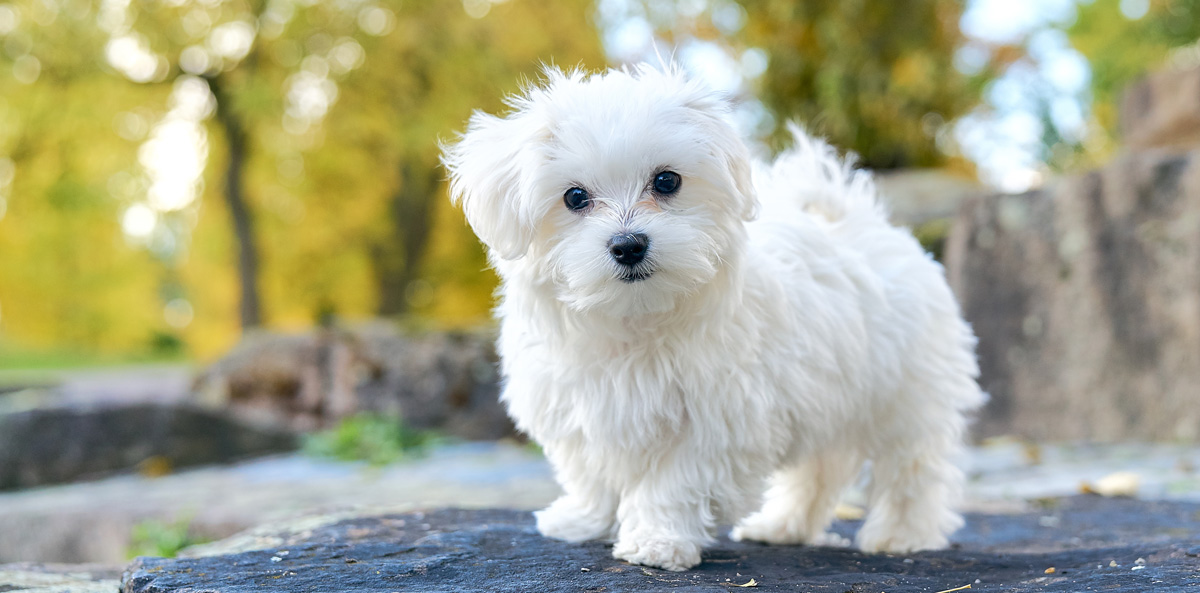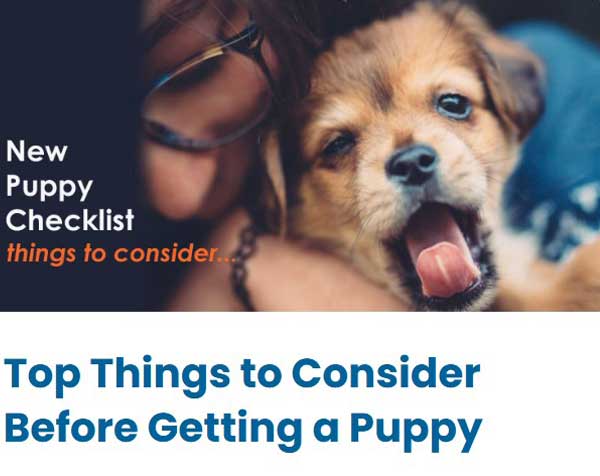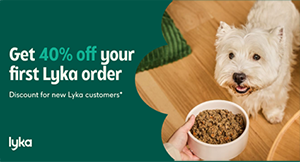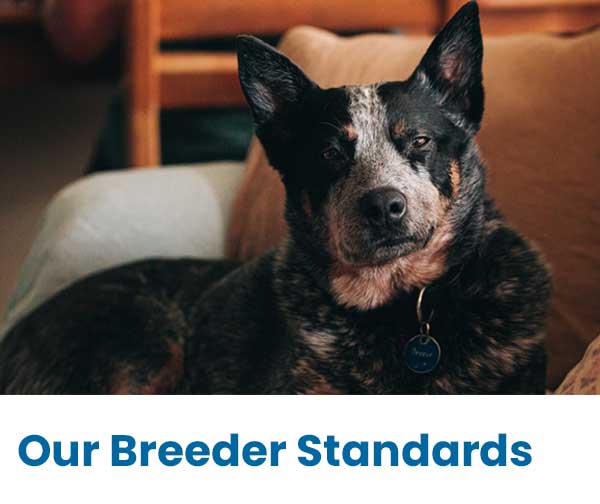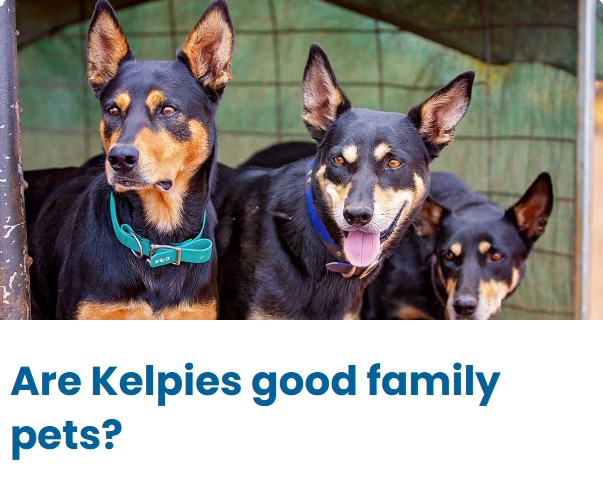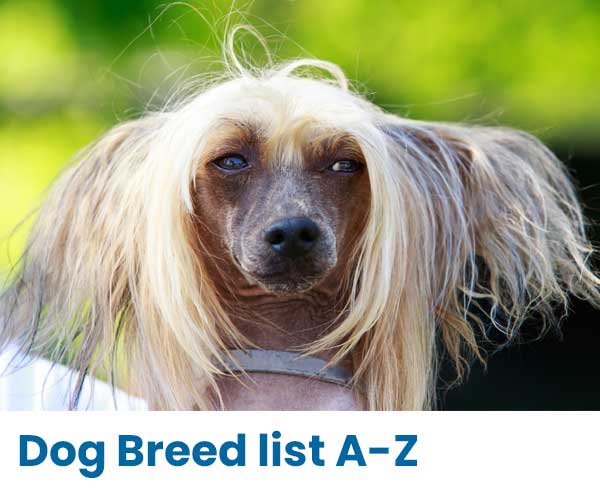Maltese breed guide
The Maltese is a small breed of dog in the Toy Group. It descends from dogs originating in the Central Mediterranean. There is some debate about whether they originate from the island of Malta or the Italian town of Melita.
There has been disagreement over whether the Maltese is a terrier due to its temperament, or a spaniel due to its coat and body shape. In the early 1900s it was agreed that neither was absolutely correct and the dog should be known simply as a Maltese dog.
Maltese temperament
Maltese are affectionate companion dogs that thrive on love and attention. They are very lively and playful, and generally sweet tempered and intelligent. They adore humans and often prefer their company to dogs.
Despite their size, the Maltese will stand up to any dog which can sometimes put them in danger. They are fierce watchdogs and will attempt to ward off strangers with ferocious barking.
Some Maltese can be snappy with small children, although careful socialisation with children at a young age will reduce this possibility.
The ideal owner for a Maltese
Maltese make affectionate indoor pets, but they can be prone to separation anxiety if left alone for long periods.
Training and socialisation
Early training and socialisation is particularly important for the Maltese. They need to be taught not to bark at every possible sound and intrusion, and not to react to every dog they encounter.
The Maltese has a stubborn streak which can make toilet training difficult and prolonged.
However, the willingness to please and agility of the Maltese mean that with time they can become excellent agility or obedience dogs.
How much space and exercise do Maltese dogs need?
The Maltese is most suited to indoor living and it can be susceptible to the cold. These dogs are happiest on the couch within sight of their family, but they will happily chase toys and butterflies in the garden.
Maltese don't require much regular exercise but really enjoy walks, especially when given plenty of opportunity to take in the smells of the neighbourhood.
Maltese can be very active inside and because they prefer enclosed spaces they do very well in small yards. They also live happily in apartments and townhouses, and make fantastic urban pets if they can be discouraged from barking.
Maltese & Grooming
Maltese have no undercoat, and shed little to no fur when cared for properly. They are considered to be largely hypoallergenic and many people who are allergic to dogs may not be allergic to the Maltese. Like other non-shedding dogs, Maltese require regular grooming to prevent mats and keep their coat neat.
The bright white coat and slightly protuberant eyes of the Maltese mean they are at risk of tear staining. This can be prevented by keep the hair below the eyes short and cleaning daily.
The typical long, full coat of the Maltese show dog takes much more grooming effort. Show dogs are typically brushed for a minimum of one hour each day to keep the long coat in peak condition.
Maltese colour variations
Maltese dogs are white. They sometimes have a slight apricot tinge around their ears. It is important to understand that their pale pink skin is prone to sunburn in the warmer months. The pigmentation on the pads of the feet, running up the nose and around the eyes need to be black, like eye liner.
Potential health issues in Maltese
The most common health problem for the Maltese are dental issues. They are prone to a build-up of tartar on their teeth which can be caused by the fact that many Maltese prefer not to eat bones. It is recommended that Maltese puppies are introduced to teeth brushing early and that dental cleaning water additives are considered.
The Maltese does have some genetic problems including a slipping patella, epilepsy and liver shunt.
Collapsed Trachea: Small breed dogs, including the Maltese, can suffer from a genetic weakness in the rings of cartilage surrounding the windpipe that may lead to ring(s) collapsing. This may happen gradually as the dog ages, or it may be caused by a sudden injury to the neck, often caused on a leash ad collar. Symptoms include coughing (sometimes with a honking sound), wheezing and/or refusal to exercise. Collapsed trachea can be painful and difficult to treat. Treatments range from medication to surgery.
Congestive Heart Failure: A heart murmur is unlikely to have any symptoms and is usually detected at an annual vet check after a Maltese is 10 years old. They don't always lead to congestive heart failure and are rated on a scale of 1 to 6. Treatment is rarely required until a murmur gets beyond grade 3 and the dog experiences symptoms such as troubled breathing, coughing, or exercise intolerance. Treatment can include a low-sodium diet and medications to lower blood pressure. Some dogs live happily for years with a serious heart murmur, bad sadly some will succumb to heart failure.
Head Shaking: A Maltese puppy or dog could shake its head for many reasons including ear infections, ear mites, and idiopathic head tremors, among others. This site has great information on Maltese head shaking.
General facts about Maltese Dogs
Average life expectancy: 12-15 years
Average weight: 2.5-3.5kg is an ideal weight
Average height (at withers): Females: 20-23 cm, Males: 21-25 cm
Maltese History
It is believed that the ancestors of the modern Maltese were worshipped by the ancient Egyptians and were believed to have the power of healing; wealthy Egyptians would keep a Maltese puppy in the room while they slept in the belief that the dog would restore them to health overnight. The earliest known representation is on artefacts dating to 600-300 BCE. The dog is also mentioned by Greek and Roman philosophers and is depicted on Greek vases found at Vulci and dating to about 500 BCE.
The Maltese dog became very popular amongst royalty and the aristocracy in Britain from the 1500s and became the prized companion of kings and queens, again partly because of the beief that they had healing powers.
Maltese dog FAQs
1. Can Maltese be left alone?
There is so much contradictory information about whether or not Maltese dogs cope at home without their companions. They are definitely dogs who prefer human companionship and they are prone to separation anxiety. However, if you take careful steps to introduce your Maltese puppy to time by themselves, some Maltese dogs will cope quite well for up to six hours alone at a time.
2. Are Maltese good family dogs?
The Maltese's gentle, affectionate, trusting nature and natural intelligence responsiveness make them an ideal family dog. They are lively and playful, and enjoy learning tricks. They need to be carefully introduced to small children because they can be snappy.
3. Are Maltese aggressive?
Maltese dogs think nothing of standing up to much bigger dogs and are great watchdogs, alerting their humans to any passing dog or stranger. However they are unlikely to follow up on their ferocious bark and are not known to bite.
4. Do Maltese need a lot of exercise?
No. Maltese dogs love a good walk and an opportunity to sniff outside, but they have quite low exercise requirements and are quite happy to spend most of the day snoozing in the sun.
Fun facts about Maltese Dogs
- Maltese are powerful jumpers and think nothing of leaping from object to object or down from high places.
- Maltese are one of the oldest dog breeds and have been known by many names over the years, including the Spaniel Gentle and the Roman Ladies' Dog.
- Their noses can change colour. A Maltese that spends most of its time indoors during winter will have a pale brown nose that changes to dark brown or black when they get out in the sun during summer.
- Queen Elizabeth I and Mary Queen of Scots both had Maltese dogs.
- The Romans specially bred the Maltese to be white because white was a sacred colour.
References:
The Maltese Information Centre
If you are a small scale ANKC registered breeder and would like to be listed here, just contact us or follow a few simple steps to add your details yourself.
We welcome helpful comments and contributions to information about this breed by email
View Maltese breeders

